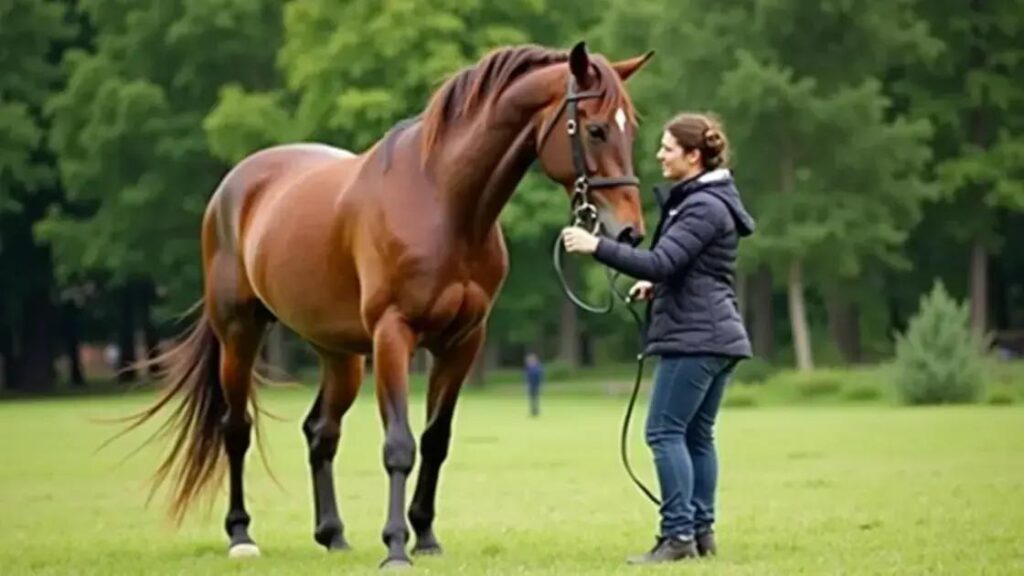Horse tricks are valuable learned behaviors that enhance the relationship between horses and trainers, improve training techniques, and provide mental stimulation. Recent research focuses on innovative training methods, including technology integration and understanding horse behavior, ensuring a more effective and compassionate approach to equine training.
Horse Trick: recent studies and research provide us with an exciting look at the world of equine behavior. Understanding how horses learn and respond to various tricks can significantly enhance training methods. By delving into scientific findings and practical applications, trainers can not only improve their skills but also ensure a better relationship with these majestic animals. This article will explore the science behind horse tricks, recent research developments, and their implications for the future of horse training.
Understanding the Science Behind Horse Tricks
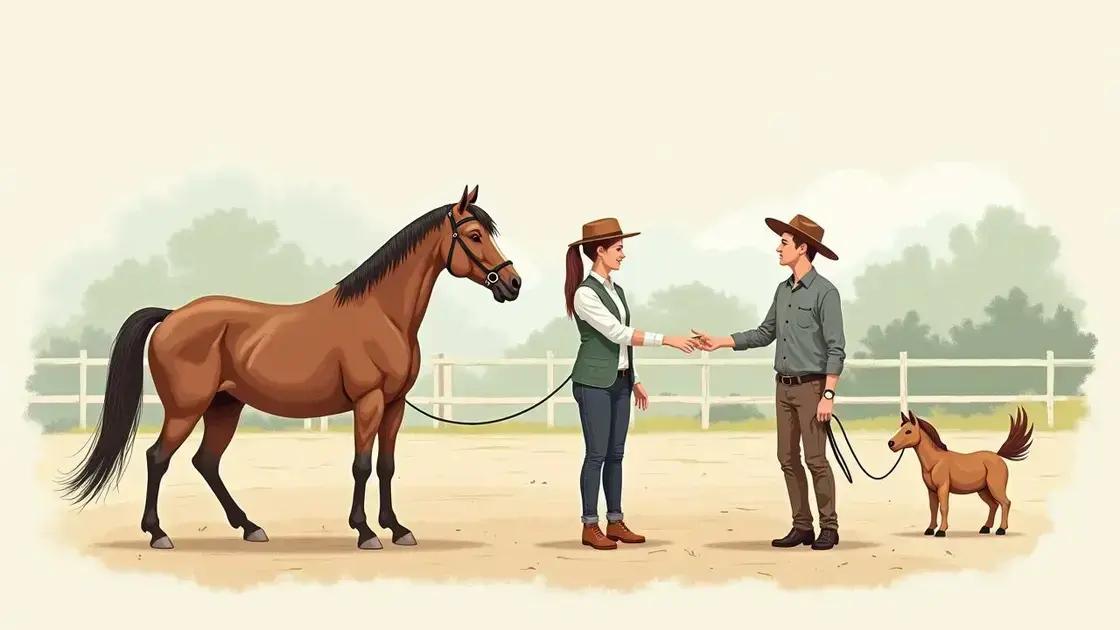
Understanding the science behind horse tricks begins with recognizing how horses learn. Horses are highly intelligent animals, capable of forming strong associations between cues and behaviors. This learning process often involves operant conditioning, where rewards follow desired behaviors, encouraging the horse to repeat those actions.
Key Learning Processes
When training a horse to perform tricks, using positive reinforcement is crucial. This technique involves rewarding the horse immediately after it performs the desired trick. The reward can be treats, praise, or even a gentle rub. This practice helps the horse correlate the trick with something enjoyable, solidifying their learning.
Body Language and Signals
In addition to rewards, understanding horse body language plays an essential role in training. Horses communicate through their posture, ear position, and movement. Being attuned to these signals allows trainers to respond appropriately, ensuring a positive training experience. For example, a horse with flattened ears may feel anxious or threatened, signaling the need for a change in approach.
The Role of Environment
The training environment significantly impacts learning. A calm, consistent space free from distractions helps horses focus better. Additionally, ensuring that the atmosphere is safe and friendly fosters confidence in the horse. This supports the horse’s willingness to learn new tricks.
Timing and Patience
Effective timing is another component of successful horse training. Delivering rewards at the right moment reinforces the connection between the command and the desired action. Trainers must also practice patience, as each horse learns at its own pace. Recognizing and respecting these differences is vital for successful trick performance.
Recent Research on Equine Training Techniques
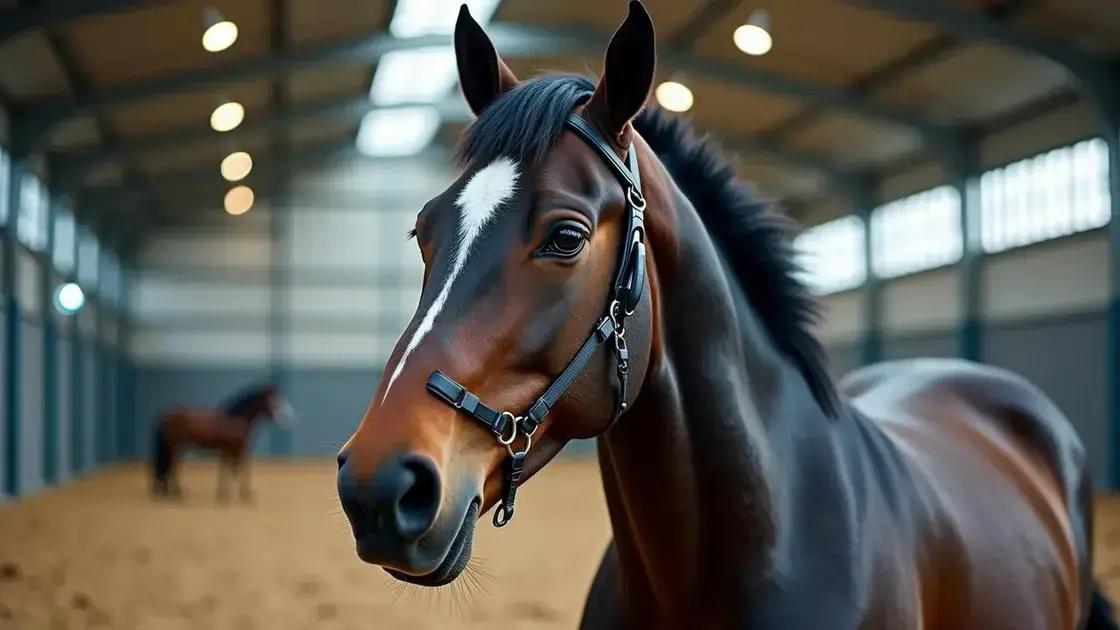
Recent research on equine training techniques has revealed innovative methods that enhance the way we train horses. One emerging technique is clicker training, which employs a sound to mark the desired behavior. This method aligns well with how horses react to immediate feedback, allowing for more effective reinforcement.
Evidence-Based Practices
Studies show that positive reinforcement not only promotes learning but also enhances the horse’s emotional well-being. In particular, research highlights that horses trained with consistent, positive techniques exhibit lower stress levels compared to those trained with negative reinforcement.
Understanding Learning Styles
Equine behaviorists have found that understanding individual horse learning styles can impact training success. Some horses respond better to visual cues, while others may learn more effectively through auditory signals. Identifying these preferences can lead to a more personalized training approach, greatly enhancing overall effectiveness.
New Tools and Technologies
Recent advances in technology have also transformed equine training. For instance, wearable devices allow trainers to monitor a horse’s heart rate and stress levels during training sessions. This data provides insights into how the horse is responding to specific techniques, enabling trainers to adjust their methods accordingly.
Importance of Social Learning
Furthermore, research has illuminated the significance of social learning among horses. Observing fellow horses can lead to improved learning outcomes. Trainers have begun incorporating group training sessions to leverage this natural behavior, showing remarkable success in teaching complex tricks.
Practical Applications of Horse Tricks
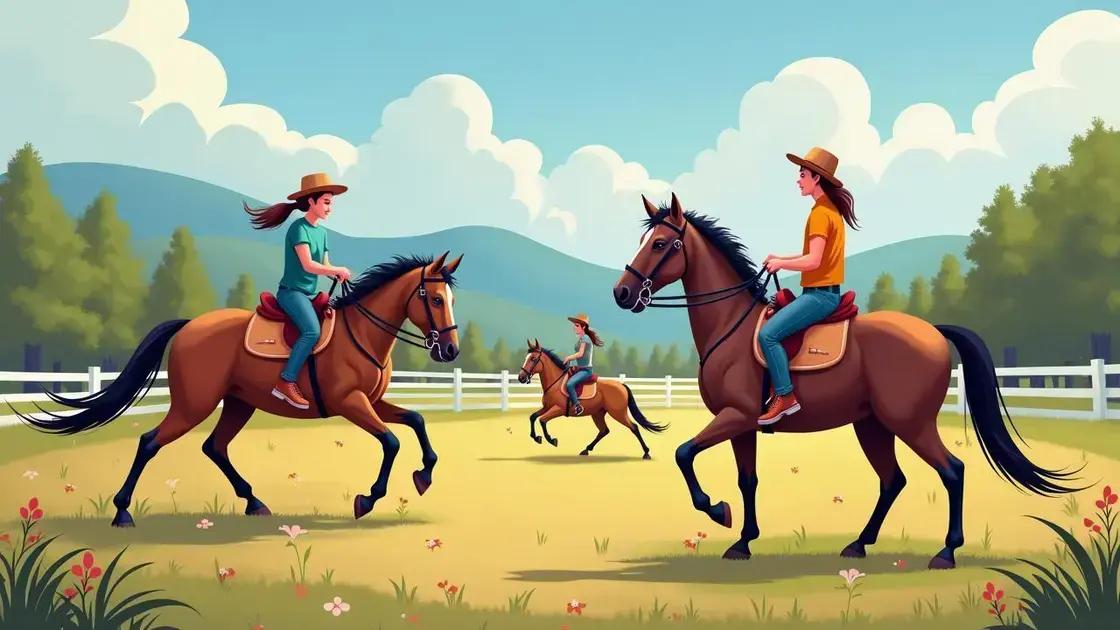
Practical applications of horse tricks extend beyond entertainment and showcase valuable skills in various fields. One significant application is therapeutic riding, where horses perform tricks to engage individuals with physical and mental disabilities. The interaction creates a motivating environment that fosters learning and emotional well-being.
Enhancing Performance in Equestrian Sports
In competitive equestrian sports, training horses to perform specific tricks can dramatically improve overall performance. For example, tricks designed to enhance a horse’s flexibility and balance can be integrated into warm-up routines, preparing them physically for competitions. This practice prepares horses for agility and responsiveness during events.
Strengthening the Human-Horse Bond
Another practical application involves opportunities for bonding between horses and their handlers. Performing tricks encourages trust and communication, strengthening the horse-human relationship. Sessions focused on tricks can also create fun and engaging activities, which are crucial for maintaining a horse’s enthusiasm for training.
Entertainment and Education
Horse tricks have also become popular in public exhibitions, such as fairs and rodeos, where they serve both educational and entertainment purposes. Demonstrating how horses can learn complex behaviors captures the audience’s interest while promoting awareness of proper training techniques. This can inspire new horse owners and enthusiasts to explore horse training further.
Behavioral Training and Problem Solving
In some cases, teaching horse tricks contributes to behavioral training. Horses with behavioral challenges may benefit from learning tricks as a way to redirect their focus and energy. Engaging these horses in fun and stimulating tricks alleviates boredom, reduces stress, and fosters a more positive attitude toward training.
The Future of Horse Training Research
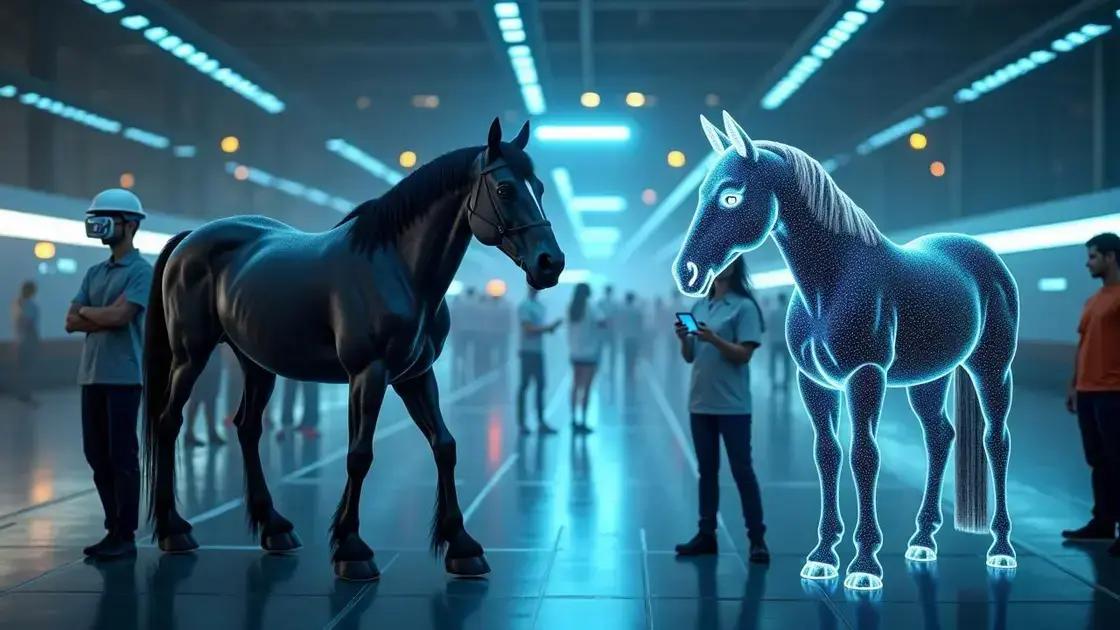
The future of horse training research is shaped by advancements in our understanding of equine behavior and learning. Researchers are focusing on improving training methodologies that enhance the relationship between horses and trainers. This includes incorporating science-backed approaches to create effective, humane training techniques.
Integrating Technology into Training
Technology is expected to play a significant role in future research. Innovations like virtual reality (VR) and augmented reality (AR) can simulate training environments, allowing trainers to develop strategies before working with live horses. These tools can provide a safe space for both trainers and horses to practice and learn.
Focus on Emotional Well-Being
Another future direction is the emphasis on the emotional well-being of horses. Researchers are studying signs of stress and anxiety in horses to develop strategies for reducing negative experiences during training. Understanding how horses feel can lead to more compassionate training methods, ensuring they are mentally and physically healthy.
Collaborative Research Efforts
The future of horse training research will also benefit from increased collaboration among experts. Veterinarians, trainers, and animal behaviorists will likely work together to share findings and develop new training techniques. This multi-disciplinary approach will create a comprehensive understanding of equine training needs.
Personalizing Training Approaches
Research may guide the trend toward personalized training strategies. Just as humans respond differently to learning methods, horses do too. Future studies will help trainers tailor their techniques to individual horses based on their unique traits and learning styles.
In Conclusion: Embracing Innovation in Horse Training
The future of horse training is bright, as new research continues to enrich our understanding of equine behavior and learning. By integrating technology, focusing on emotional well-being, and fostering collaboration among experts, trainers can create more effective and compassionate training environments.
As we explore personalized training approaches and humane methodologies, the bond between horses and trainers will strengthen, ultimately benefiting both parties. By embracing these advancements, we can enhance the quality of horse training and ensure a more satisfying experience for horses and humans alike.
In this evolving landscape, staying informed about the latest research and trends will empower trainers to adopt the best practices and make a lasting impact on the world of equine training.
FAQ – Frequently Asked Questions about Horse Tricks and Training
What are horse tricks and why are they important?
Horse tricks are learned behaviors that horses perform on cue. They are important for enhancing training methods, improving bonding, and providing mental stimulation for horses.
How can I start teaching my horse tricks?
Start with simple commands using positive reinforcement techniques. Use treats or praise to reward your horse immediately after the desired behavior.
What benefits do horse tricks offer for therapeutic riding?
Horse tricks can engage individuals with disabilities, promoting physical and emotional well-being while enhancing their learning and interaction with horses.
Can technology be used in horse training?
Yes, technology such as wearable devices and virtual reality can enhance training methods and help monitor horses’ physical and emotional responses during sessions.
How can understanding horse behavior improve training?
Understanding horse behavior allows trainers to create personalized training approaches, addressing individual learning styles and emotional needs, resulting in more effective training.
What trends are shaping the future of horse training research?
Trends include integrating technology, focusing on emotional well-being, fostering collaboration among experts, and developing personalized training strategies.

